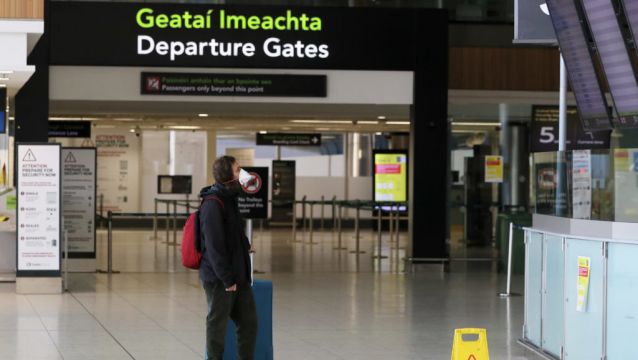Ryanair and Aer Lingus have secured formal High Court permission to bring challenges against a decision by the Irish Aviation Authority (IAA) to limit passenger numbers in Dublin Airport for the coming winter season.
Last May, the IAA announced that it would be imposing a Passenger Air Traffic Movement (PATM) seat cap of just over 14.4 million passengers at Dublin Airport during the period commencing on October 27th, 2024, and ending March 29th, 2025.
Both airlines claim the decision is legally flawed and should be set aside.
The grounds of the airlines' challenges include that, in arriving at its decision, the IAA acted outside its powers, outside its jurisdiction, and has acted irrationally.
It is also claimed that the IAA has failed to give proper reasons for its decision, and has breached various constitutional rights of the airlines, including their property rights.
The airport's operator, daa, has also brought its own separate High Court action against the IAA's decision.
When the airlines' cases came before the court on Monday, Martin Hayden SC, for Ryanair, and Paul Sreenan SC, for Aer Lingus, told the court that while all the cases are aimed at having the IAA's decision quashed, the airlines' actions have been brought on different legal grounds compared to that of the daa.
Mr Sreenan said the decision will negatively impact Aer Lingus' ability to provide certain winter services, including flights taking children to Lapland around Christmas, as well as flights to ski resorts in France, Austria and Switzerland.
Mr Hayden told the court Ryanair fears its business would be prejudiced by the decision, particularly if similar restrictions are put in place regarding passenger numbers for the Summer 2025 period.
Counsel said, at present, Ryanair's "best guesstimate" is that another "artificial cap" on passenger numbers at the airport may result in the loss of some 5,600 slots or 1.1 million seasons for the period.
This could see Ryanair lose up to €89 million that season, the court heard.
As well as seeking orders quashing the IAA's decision, the airlines also seek a declaration that the respondent erred in law and acted contrary to its requirement and jurisdiction regarding the allocation of slots at EU airports in treating certain planning conditions of Dublin Airports Terminal 2 as relevant technical, operational and environmental constraints for setting coordination parameters for the airport.
Daa and the UK-based Airport Coordination Limited, which is the appointed coordinator of slots at the Dublin Airport after the parameters have been set, are notice parties to the airlines' challenge.
Both applications came before Ms Justice Niamh Hyland on Monday, who granted the airlines permission on an ex parte basi to bring their challenges.
They said that in each of their cases both sides had the legal standing to bring their respective actions, had made out arguable grounds, and had no alternative way to challenge the decision except by way of judicial review.
The judge adjourned the airlines' actions to a date next week.
In reply to the judge, counsel for the airlines expressed their hope that all three challenges against the IAA's decision could be heard in succession by the same judge.







